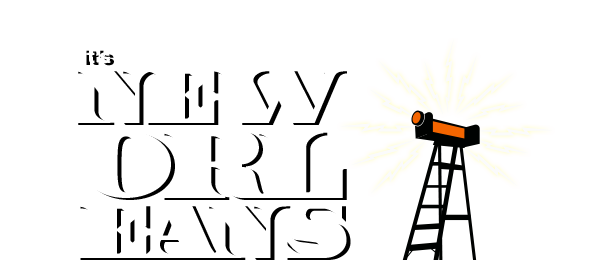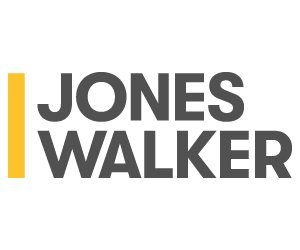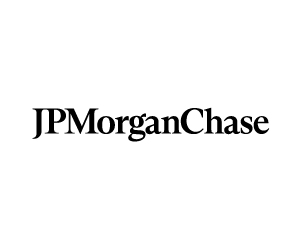There’s a term in psychology that also applies to marketing. It’s called “The Halo Effect.” It refers to how we can make sometimes incorrect assumptions based on a collection of pieces of information.
For a business case study let’s take a look at a lighting company that was founded in the UK in 2015, called Tala.
Tala designs and sells lighting fixtures that are elegant, environmentally friendly, focused on sustainability – they’re able to be repaired, and if they have to be discarded they’re recyclable – and they’ve been featured in Architectural Digest. The company has an international reach, is widely admired, and is financially successful. The Halo Effect would have us believe their lighting fixtures must be exclusive and expensive, and the company must have its eye firmly on profit.
Well, the truth is somewhat different. Tala is what’s called a B-Corp – it’s a registration given to companies that focus on using business as a force for good, striving for inclusive, equitable, and sustainable economic practices. And Tala’s lighting fixtures are inexpensive – you can find them online at Wayfair. And, to complete the expect-the-unexpected list of circumstances at Tala, the Chairman of the Board of this innovative and progressive company is New Orleanian, Anthony Robins.
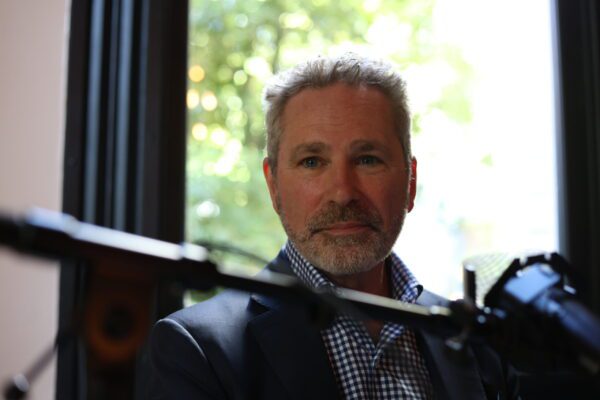
How many New Orleanians does it take to change a lightbulb? Only one if you’re Anthony Robins, Chairman of the Board of Tala, a UK-based design company that’s re-invented the lightbulb and redesigned the lamp and fxture that holds it
We can make incorrect Halo Effect type generalizations about other businesses too. For example, when we hear “Wedding Reception Venue” we typically picture a high-school-gym kind of vibe, with a stage for a band or DJ. When we hear “Hotel,” we expect it to be something between a Holiday Inn and the Ritz Carlton – the only difference being the amenities and the cost. A local company called Workshop WDXL (pronounced, “W.D 40”) is challenging all of these assumptions. The W.D. part of the name is the initials of the team’s principals, Jessica Walker and David Demsey, and XL is forty is in Roman numerals.
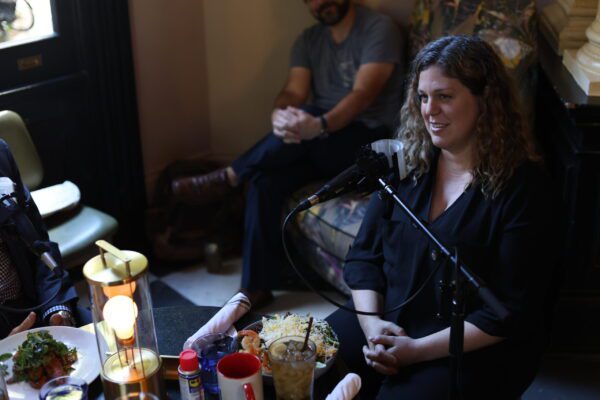
Jessica Walker, architect and Principal at WDXL (aka WD40) realized when she got married that the wedding business is a lucrative game and got into it by buying a church
Some of the Halo-Effect-busting, non-traditional, New Orleans businesses Workshop WD 40 have created are, the wedding venue, Felicity Church, and the hotels and villas, The Syd and The Mitzie. All of these projects have won prestigious architecture and design awards.
When we talk about the environmental impact of human activities, we’re generally talking about burning fossil fuel, the use of plastics, pollution from factories and farms, and even the use of AC systems and aerosols. The one thing that does not seem to show up on these lists is lighting. And yet, every single home on Earth that has electricity has multiple light fixtures and lightbulbs. And we know that inefficient bulbs burn more fossil fuels, light pollution reshapes ecosystems, and discarded light fixtures add to the world’s growing mountain of e-waste. One of the core values of Tala is to address these issues – and to package the solutions as elegant, attractive, and affordable light fixtures.
Most architects dream about designing cool, quirky, inventive buildings. Most commercial property developers are focused on budgets – bringing projects in on time and as cheaply as possible. Most real estate developers are looking for bells and whistles that will pitch a property as high up the price range as a market will bear. These three goals are often at odds with each other but Workshop WDXL, is juggling all 3 of these balls.
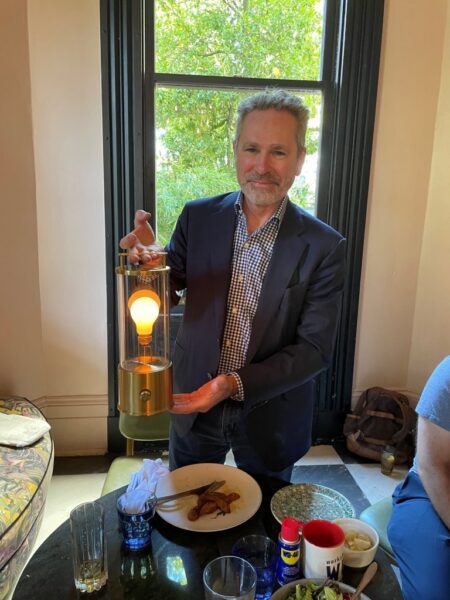
Anthony Robins demonstrates Tala’s portable table lamp, Muse, one of the company’s best-selling items
Out to Lunch was recorded live over lunch at Columns in Uptown New Orleans. Photos by Blake Langlinais.
